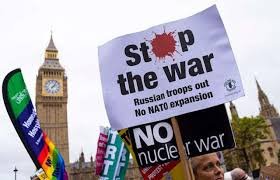
Arquivo para a ‘Social Network’ Categoria
Really tackling the issue of poverty
Simply distributing income or just giving a plate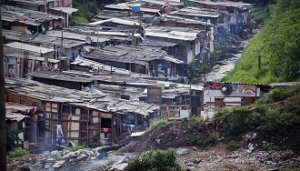 of food solves the emergency issue, but it keeps poverty latent and does not provide social uplift and economic stability.
of food solves the emergency issue, but it keeps poverty latent and does not provide social uplift and economic stability.
The issue of poverty is a complex problem, although its consequences are easy to see, but raising the quality of life and dignified survival of millions of people must be tackled in a way that goes beyond the emergency, even if it is necessary.
Among the rarely analyzed causes of poverty are corruption, wars, precarious infrastructure and the difficulty in generating jobs and creating them with decent wages, so informality and even crime and illegal markets (even drugs) are consequences.
The consequences are well known: hunger, unemployment, lack of decent housing, lack of basic sanitation, violence, the spread of epidemic diseases, discrimination and social vulnerability.
Tackling one aspect while ignoring others, for example the issue of basic sanitation, is crucial and is not easily visible to many public managers who only see aspects that give them more visibility and help improve their vision, which in Brazil is always critical.
The issue of income distribution is a fundamental aspect, but it’s not just a question of solving the emergency, creating possibilities for social mobility among the lower income levels is an essential factor in eradicating poverty, as is promoting aspects of schooling and job creation.
The global problem to be tackled is emigration, not just hunger and poverty, but above all wars and persecution of certain ethnic groups, which is a very serious factor and could escalate into a world war.
Clear public programs that not only solve the emergency problem, which is visible to the population, but also the medium and long term problems are essential. The low level of social mobility and the difficulty for the lower income groups to access public goods and services is still a crucial factor in many countries around the world, and extreme poverty persists despite programs and policies, where they have failed is precisely where the propaganda was strongest and the measures least effective.
Changing the rhetoric of welfarism and the distribution of social leftovers is fundamental. We need to restore dignity to every human being, overcoming not only prejudice, but above all the way in which we view these people, who have the same dignity as others.
Real danger, decisive week for peace
The death of Ibrahim Akil, one of the heads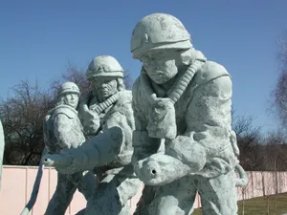 of Hezbollah’s military operations, led the organization to declare “indefinite war” against Israel.
of Hezbollah’s military operations, led the organization to declare “indefinite war” against Israel.
This Sunday they exchanged heavy fire, with Israeli warplanes carrying out the most intense bombardment in almost a year of conflict in southern Lebanon, Hezbollah for its part firing rockets towards northern Israel.
The peace talks are thus at a standstill, although US Defense Secretary Lloyd Austin exchanged six phone calls in the week with his Israeli counterpart, showing serious concern about the escalation of the conflict and calling for a diplomatic solution.
In Ukraine, the peace talks are also polarized in this respect: Brazil and China are trying to talk to Putin, while European countries and the United States are trying to reach a dialogue that is more favorable to Ukraine’s claims for peace.
What’s most frightening are the nuclear threats, which Russia always brings up and now Ukraine is saying that the Russians are also planning attacks on nuclear power plants, the effects of which would be terrifying, just think of Chernobyl, of course in this case it was an accident, but the effects should never be repeated by these two countries that came to that moment.
On April 26, 1986, reactor number 4 at the Chernobyl nuclear power plant, then a Soviet republic linked to Moscow, suffered a catastrophic meltdown that caused the government to evacuate 30 km around the plant, the area of which is uninhabitable to this day. C, 4 times higher than volcanic lava.
Sources indicate that between 2 and 50 people died in the explosion, dozens of others contracted serious illnesses caused by the radiation, some of whom died later. Between 50 and 185 million curies (unit of radiation activity) of radionuclides (radioactive forms of chemical elements) escaped into the atmosphere – several times more radioactivity than that created by the atomic bombs dropped on Hiroshima and Nagasaki in Japan (pictured is a monument to the workers who fought the Chernobyl fire).
Modern reactors incorporate more safety devices to prevent a disaster like Chernobyl, but in the event of a war “accident” control can be difficult.
The fact that there are countries committed, albeit polarized, is an encouragement and also those who see the civilizational crisis that they would unleash can serve to allow minds inflamed by hatred to cool their anger.
Towards a political ontology
Various authors talk about what power is,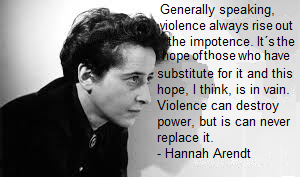 from the classic contractualists (Hobbes, Locke and Rousseau), through the modern readings of Marx, Weber, Tocqueville, Bobbio and Norbert Elias, to Byung-Chul Han (psychopolitics) and Foucault (biopolitics), but Hannah Arendt went further by envisioning political ontology and completely escapes Hegelian thinking.
from the classic contractualists (Hobbes, Locke and Rousseau), through the modern readings of Marx, Weber, Tocqueville, Bobbio and Norbert Elias, to Byung-Chul Han (psychopolitics) and Foucault (biopolitics), but Hannah Arendt went further by envisioning political ontology and completely escapes Hegelian thinking.
In her book from the late 1960s (and therefore Arendt’s Arendt’s maturity), she criticizes the “new left” which thought of Fighting a world threatened by nuclear destruction and dominated by large state, administrations and they would be responsible for violence and ultimately the essence of all power, she writes.
If we turn to discussions of the phenomenon of power, we quickly realize that there is a consensus among political theorists, from left to right, that violence is simply the most flagrant manifestation of power. ‘All politics is a struggle for power; the basic form of power is violence,’ said C. Wright Mills, echoing Max Weber’s definition of the state as ‘domination of man by man based on the means of legitimate violence, that is to say, supposedly legitimate violence. Wright Mills, echoing, as it were, Max Weber’s definition of the state as the ‘domination of man by man based on the means of legitimate, that is, supposedly legitimate, violence’”. (Arendt, 2001, p. 31)
For the author, following the Greco-Roman tradition, this concept bases power on consent and not violence, thus on a relationship of command and obedience.
The author notes that this concept is “a sad reflection of the current state of political science” (p. 36) and a natural identification of the traditional view of power and violence, since “power, vigor, force, authority and violence would be simple words to indicate the means by which man dominates man; they are taken synonymously because they have the same function” (idem) and this “virility” is often observed from Greece to the present day.
For the author, “power corresponds to the human ability not only to act, but to act in concert. Power is never the property of an individual; it belongs to a group and remains in existence only to the extent that the group remains united. When we say that someone is ‘in power’, we are really referring to the fact that they have been empowered by a certain number of people to act on their behalf” (p.36).
For the author it is necessary to review these concepts: power, vigor, force, authority and violence, since “violence would not identify any coercive act, but only that which operates, in the case of social relations, on the physical body of the opponent, killing him, violating him, in short, it seems to describe only the effective use of implements” (p. 37) and thus war.
Arendt speaks of “isonomy” where Chul Han speaks of “symmetry”, similar concepts, and so power is indeed that which “emerges wherever people unite and act in concert, but its legitimacy derives more from the initial being together than from any action that might then follow” (p. 41, with emphasis in my text).
What is needed is an action of “unity”, of “service” and, at best, as the one who serves the community and not the one who serves himself, and for this he will always need violence.
This requires an action of “unity”, of “service” and, at best, as a the best case scenario, as the one who serves the community and not the one who serves and for this you will always need violence.
ARENDT, H. (2001). Poder e violência. Brazil: Rio de Janeiro, ed. Relume Dumará.
The difference of the divine Love
Hannah Arendt’s reading of Saint Augustine in her doctoral thesis remains between these two interpretations of human and divine love.
in her doctoral thesis remains between these two interpretations of human and divine love.
To analyze this, Arendt interprets Augustine’s work as governed by three principles that appear without apparent contradiction. She increased Augustine’s dogmatic rigidity to the extent that Christianity was inserted into his thinking, this consisting of his passage from pre-theological, philosophical thinking to theological thinking, according to the author.
Thus the first part of the author’s thesis, entitled “Love as desire: the anticipated future”, approaches love from a philosophical perspective of continuity with Hellenic thought, in which love is seen as a disposition that is always driven by lack, by something that is not possessed, but which one hopes to have, as a means of achieving happiness, thus desire is something not yet achieved while Love is the desire obtained, and this is philosophical.
These two types of love are given two names by Augustine: caritas and cupiditas. They differ in their love for the object they love, “but both right and wrong love (caritas and cupiditas) have this in common – desirous longing, that is, appetitus”, writes the author.
Caritas is pure, true love, because it desires God, eternity and the absolute future, while cupiditas loves the world, the things of the world, here it is pre-theological, because charity is not just a passing love, or desire for a passing good, but for the eternal.
Whether we are religious or not, we are between desire and possession, after we have obtained the desired object in general, and enjoyed the pleasure of this possession, cupiditas passes and something eternal remains if there is caritas in it, that is an Eternal Love, which gives an eternal possession and then does not pass away.
So the man who has this quest must withdraw into himself, and within himself, isolating himself from the world, he penetrates the Augustinian “quaestio”, the guiding thread that Arendt pursues: “for the more he withdrew into himself and collected himself in the dispersion and distraction of the world, the more he became a ‘question for himself’,” wrote the author.
Every philosophy has a basic question, and Augustine’s becomes theological: “What do I love when I love my God?” (Confessions X, 7, 11 apud Arendt p. 25), even if it is “in the world”.
Thus the second part of her thesis is called “and ‘Creature and Creator: the remembered past’, in book X of Confessions. “Memory, then, opens the way to a transmundane past as the original source of the very notion of a happy life,” the author wrote about Augustine.
In proposing a relationship with the Creator, man does not lose himself, but finds himself, and this is different from any kind of worldly attachment, the god of money, consumption or desire.
Arendt, Hannah. (1996) Love and Saint Augustine. Chicago: University of Chicago Press
Hannah Arendt and Love´s Mundi
Hannah Arendt was, in our view, instigated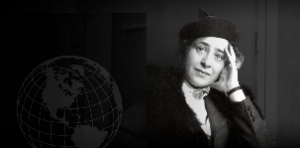 by her existential drama, and within it, to take up the question of Love as an essential issue from an early age, writes Safransky:
by her existential drama, and within it, to take up the question of Love as an essential issue from an early age, writes Safransky:
“At the beginning of 1924, an 18-year-old Jewish student arrived in Marburg wanting to study with Bultmann and Heidegger. She was Hannah Arendt. She came from a good assimilated Jewish family in Könisberg, where she had grown up. By the age of 14, her curiosity had already been aroused. She read Kant’s Critique of Pure Reason and mastered Greek and Latin so well that at the age of 16 she founded a study and reading circle for ancient literature. Even before her final exams at the Könisberg high school, she spent a season in Berlin, where she read Heidegger and took lessons from Romano Guardini (a specialist in Kierkegaard),” Safranski wrote about Hannah.
While still a teenager, the thinker who had already formed a philosophy circle as an adolescent, wrote her first concerns, Hannah Arendt wrote the poem Consolation (Trost):
“The hours pass, Die Stunden verrinnen / The days pass, Die Tage vergehen, / There remains one grace Es bleibt ein Gewinnen / The simple persisting. Das blosse Bestehen.” (Young-Bruehl, Hannah Arendt, For Love of the World, p. 53).
In a letter from Heidegger to her, “And what can we do but open ourselves, but let it be what it is? To let ourselves be in such a way that love becomes for us a pure/chaste joy (reine Freude) and the source of each new day of life. To be elevated to what we are. In any case, it would be possible for one of us to ‘say’ and open up to the other. We can only say, however, that the world is no longer mine or yours, but ours”.
Thinking of the world as “ours” and not mine is a necessity of our time, an essential step towards our world problems. When we read Hannah’s doctoral thesis “The Concept of Love in St. Augustine” (ARENDT, 1998), we understand that there was an attempt to go beyond the existential and get to the essence of love, and the search for amor mundi.
When reading Augustine of Hippo, the subject of her doctoral thesis, she observes the separation between love and enjoyment: “this joy lies in loving love without inscribing it in something particular and fleeting”, and then emphasizes: “Love hopes to find its own fulfillment in eternity” (Arendt, The Concept of Love in Saint Augustine, p. 35).
Despite this reference to “eternity”, Arendt doesn’t get to that theological virtue: love, which must be combined in an “existential” way as faith and hope, since in eternity, for those who believe, faith and hope will already be in fullness in Love.
ARENDT, H. (1998) O conceito de amor em santo Agostinho. Transl. de Alberto Pereira Dinis. Portugal, Lisboa: Instituto Piaget.
SAFRANSKI, R. (2000) Heidegger, um mestre da Alemanha entre o bem e o mal (biografia). Transl. de Lya Luft. Apresentação de Ernildo Stein. Brazil, São Paulo: Geração Editorial.
Power, punishment and psychopolitics
After Surveillance and Punishment, Foucault realized that disciplinary society was not exactly what modern society reflected, as Byung-Chul Han’s book on Psychopolitics puts it, “the problem, however, was that it remained linked both to the concept of population and to that of biopolitics [quoting Foucault] ‘if once we know what this governmental regime called liberalism was, we can, it seems to me, grasp what biopolitics is’ (Han, 2020, p. 37).
realized that disciplinary society was not exactly what modern society reflected, as Byung-Chul Han’s book on Psychopolitics puts it, “the problem, however, was that it remained linked both to the concept of population and to that of biopolitics [quoting Foucault] ‘if once we know what this governmental regime called liberalism was, we can, it seems to me, grasp what biopolitics is’ (Han, 2020, p. 37).
Byung-Chul discovers that “disciplinary technique passes from the corporeal to the mental sphere. The English term “industry” also means “effort”. The locution industrial school can mean house of correction. Bentham also suggested that his pan-opticon would morally improve the inmates. Content, the psyche is not the focus of disciplinary power” (Han, 2020, p. 35).
The Korean-German essayist develops all the assumptions developed by Foucault to make the transition from biopolitics to psychopolitics, which he is right to do, but it is totally linked to the idea that it is the neoliberal principle and not the Hegelian one that establishes this logic of power, although both in the book What is Power and in the book In the Swarm, he examines other aspects ranging from technology to human behavior, for example, in the essay In the Swarm, he states that the only symmetrical form of power is respect.
In a more analytical way, he also considers idealist philosophy from a behavioral perspective:
“As in the relationship of knowledge (Kant), there is no continuity of the Ego, without the Alter, as he attests, by denoting that, power allows the ego to be in the other by itself. It generates a continuity of the self. The ego makes its decisions in the alter. This is how the ego continues in the alter. Power gives the ego spaces that are its own, in which, despite the presence of the other, it can be itself.” (Han, 2019, p. 11).
So it is necessary to escape from selfish, exclusivist concepts to penetrate a level of alter in order to fully realize our feelings and decisions, it is not an effort of the self nor of egocentric power that we achieve this state of peace and happiness so desired.
So inflamed egos, masters who seize power in order to dominate others, are unable to create a healthy policy that includes the whole of society and perhaps the whole of society, because it is not possible to live in harmony without respecting diversity, difference and the Other.
All totalitarian regimes are heading for war because they need to eliminate the Other, the different and the voice of those who see the world from a different perspective.
HAN, Byung-Chul. A Psicopolítica: o neoliberalismo e as novas técnicas do poder. Brazil: Petrópolis: Vozes, 2020.
HAN, Byung-Chul. O que é Poder? Transl. de Gabriel Salvi Philipson. Brazil: Petrópolis: Vozes, 2019.
Maximum tension between NATO and Russia
Accusations of direct aggression between the West and Russia have reached a dangerous limit.
The tensions surrounding the war in Eastern Europe have reached an all-time high. British Prime Minister Keir Starmer and US President Joe Biden are reportedly talking about allowing Kiev to use American ATACMS and British Storm Shadow long-range missiles on internal Russian targets.
On the other hand, China and Russia have held joint military exercises called “Joint SEa-2024”, which Japan and Eastern countries view with suspicion, as well as Taiwan and the islands that are conflicts between Japan and Russia (Sakhalin and Kuril Islands) and China and the Philippines (Spratlye Islands and Scarborough Atoll), but the main conflict is markets with the West.
Russia has used drones from Iran in the confrontation with Ukraine, and this strengthens the link with the Muslim world, while support for Israel from France and the US strengthens the NATO alliance.
Brazil and China had proposed a peace proposal that would “freeze the current borders” in a ceasefire, but this referred to May, now the advance of the Ukrainians into Russian territory changes this scenario, and it is not clear what the proposal actually is, but Ukrainian President Zelensky had already rejected the proposal, saying he was not consulted.
The scenario is serious because a simple attack on Russian territory with long-range missiles will be considered a NATO aggression, since Western countries have offered weapons and given a go-ahead, while NATO forces are preparing a possible retaliation.
On the Middle East front, as I explained with almost the same allies and enemies, the climate is also one of hostility and an agreement seems to be further and further away.
A senior Hamas commander, Oussama Hamdane, in an interview with AFP accused the United States of not exerting enough pressure on Israel to seek a ceasefire agreement, and claims that on the contrary “it is trying to justify the Israeli side’s evasion of any compromise”, and American political strength would be able to lead the Middle East to a hope of peace in a conflict that has gone beyond humanitarian limits.
There are still hopes, voices calling for serenity and common sense, various organizations and entities that are honestly seeking a reasonable and lasting peace.
Asymmetries, power and sociability
The Korean-German essayist Byung-Chul Han,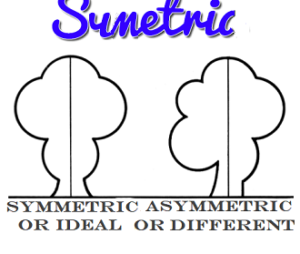 in his book In the Swarm, points out that only respect is symmetrical, the various forms of communication and power are asymmetrical, but this taken to the limit causes hatred, contempt and war.
in his book In the Swarm, points out that only respect is symmetrical, the various forms of communication and power are asymmetrical, but this taken to the limit causes hatred, contempt and war.
Jacques Rancière, who wrote “Hatred of democracy”, points out that this theme has taken on dramatic contours today, but already exists in literature: “The author points out that rejection of democracy is nothing new, but it has new contours:
Its spokespeople inhabit all the countries that declare themselves not only democratic states, but democracy tout court. None of them claim a more real democracy. On the contrary, they all say that it is already too real. None complain about the institutions that claim to embody the power of the people, nor do they propose measures to restrict that power.
Rereading the literature, he recalls authors who defended it: “The mechanics of the institutions that enchanted the contemporaries of Montesquieu, Madison and Tocqueville do not interest them. They complained about the people and their customs, not the institutions of their power. For them, democracy is not a corrupted form of government, but a crisis of civilization that affects society and the state through it,” and so we don’t speak of a ‘crisis of civilization’ at random.
The discussion of the media influencing politics has been around for centuries, as has the fact that defaming opponents through situations that are not always true or even out of context is a common practice to try to impose an opinion in an asymmetrical way.
The fact is that we now have a more powerful medium that can potentiate these falsehoods and the new media are not just control algorithms or efficient Artificial Intelligence mechanisms, now a new technological approach, the fact is that we have to seek a balance, a symmetry from personal relationships to power.
You can’t apply laws unilaterally, or even make them to suit political situations, they must apply to everyone and if they change they must follow a rite and the appropriate institutions for this, trampling on powers, anticipating processes or making summary rites are abuses of power.
This is how we start with respect for opinion, for dialogue, for what is different, and arrive at the exercise of power with moderation and the utmost fairness, even if opposing forces confront the contradictory discourse, this must be done within the framework of legality and legitimacy.
On a personal level, overcoming stalemates, raids and personal differences with parsimony and respect helps to balance social relations, even if it often borders on offense on one side.
It’s not a heroic attitude, it’s a defense of coexistence, tolerance and social peace.
Rancieré, J. (2007). Hatred of Democracy. USA, NY: ed. Verso.
The crisis of thought and war
The scenario of the world’s involvement in wars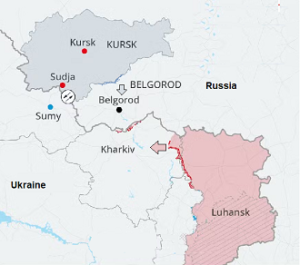 is a difficult one. It is necessary to understand what lies behind it, as it is a daily confrontation between minds, souls and economic interests.
is a difficult one. It is necessary to understand what lies behind it, as it is a daily confrontation between minds, souls and economic interests.
They reflect the crisis of contemporary thought, which is not only philosophical, religious or political, but also a loss of the foundations of what is human, nature and science itself.
Sloterdijk’s vision, expressed in his spherology in volume I Bubbles, shows that both the onto and anthropological phenomena are more essential than the relationship between subject and object, as they precede the spatial experience of Being-in (even if it’s not exactly what Heideger called In-Sein), which is the main criticism of contemporary idealism.
In the field of religion (and this can be extended to thought), the essayist Byung-Chul Han reflects that the “pathos of action blocks access to religion. Action is not part of the religious experience.” (Vita Contemplativa by Byung Chul Han, p. 154), so religion is also in a daily “war” that takes military warfare to the extreme.
The hatred that has reached Iran and its allied groups and Israel is linked to this idea, and also fundamentalism, which is different from orthodoxy, leads to the extremes of war.
While orthodoxy proclaims love and attachment to others, action leads to war and the destruction of what is different, nothing is tolerated that is not similar to the “model” of the ideal or the ideology that derived from it, dictatorships and oppressors proliferate across the planet.
The preparation of Iran and Israel for a total war without intermediaries, and of NATO with Russia, are getting closer and closer. Of course, common sense is always possible and knowing that everyone will lose, but the logic of war is that someone will always lose more, and that constitutes victory.
Russia’s approach to Kharkiv and Ukraine’s entry into Russian territory show that the war is one of conquest and thus reduces the possibility of a peace agreement.
Hope is always possible, and it is the resilience of the spirit and the desire for peace.
Wars and their crimes intensify
Both in Eastern Europe and the Middle East,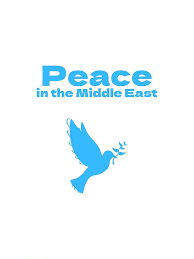 violence against civilians increases and the war increasingly takes on global proportions with the presence of US and European forces.
violence against civilians increases and the war increasingly takes on global proportions with the presence of US and European forces.
Ukraine’s advance on Russia is met with multiple bombers of civilian regions by Russia, while Ukraine advances into Russian territory and tries to consolidate itself within this territory, suffering setbacks in the east where Russian forces approach Kharkiv.
On the border of Lebanon and the West Bank, Israel and Hezbollah exchange fire with rockets, Prime Minister Benjamin Netanyahu was convicted by the prosecutor of the International Criminal Court for crimes against humanity and war crimes in Gaza, Hamas on the other hand killed 6 hostages, four men and two women who were at the music festival, the scene of terrorism carried out by Hamas in Israeli territory.
The climate is one of total war, Israel has declared itself “at war”, there is an evacuation of civilians in Gaza, and several airlines have canceled flights to Israel.
The situation is quite worrying because it is increasingly a path of no return, a total war is increasingly possible, the Russian foreign minister spoke openly about the matter, last Tuesday (27/08) he said that “the The West is playing with fire.”
The minister and spokesperson directly threatened the USA by stating: “Americans unequivocally associate conversations about the Third World War as something that – if, God forbid, it happens – will exclusively affect Europe”, so he assumes that the possibility exists.
Certainly the warning is clear, and the situation of Ukrainian troops in an area of 1,200 km2 within Russia is not only a nuisance, but shows, at least occasionally, a military fragility of which Russia has always been proud, the country has never abandoned education warfare, which is even taught in state schools.
The world’s concern is the tension in the Middle East, unfortunately there is no prospect of disarmament and both Netanyahu’s conviction and the death of hostages by Hamas are fuel on the fire that fuels hatred and war. September, which begins, brings global concerns.
On the Eastern European side, it is possible to sew some truce and a path to peace, if Europe and NATO want, of course, and Russia admits the negotiation, with the recent defeats and the concern for its territory this can happen, but the involvement of several countries is very worrying, a clear sign of respect for Russian sovereignty is needed.
Peace must be desired and practiced by everyone, it is necessary to disarm spirits, the global climate is tense.


